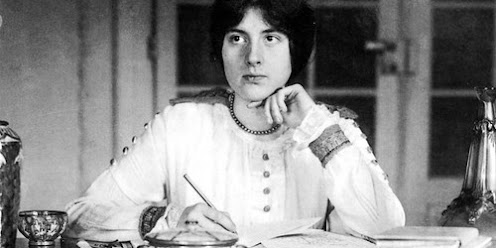Lili Boulanger’s Vieille Prière Bouddhique
This March, the Daily Classical Music Post will introduce you to some of the most wonderful music ever composed—and, yes, it will all be by women composers!
The French composer Lili Boulanger (born 1893, died 1918) was the younger sister of Nadia Boulanger. Lili’s talent was obvious from the age of two, and her parents (both of whom were musicians) took her to all the best people for instruction, including Louis Vierne, Paul Vidal, Georges Caussade, and Gabriel Fauré. When Lili was 19, she won the Prix de Rome for her Faust et Hélène; she was the first woman composer to win.
Lili had been chronically ill almost from birth, and she died from what is now known as Crohn’s disease at the age of 24. Adrian Corleonis says, "Artists who die young leave behind such an aura of promise that one examines their musical remains with divinatory care, for glimpses of what might have been. Lili Boulanger . . . tantalizes in this way. . . . [W]hat strikes one about Lili Boulanger is polish, sophisticated technical omnicompetence going hand-in-hand with a depth and complexity of feeling transcending mere passion. The works she left behind are exquisitely finished . . ."
The Vieille Prière Bouddhique was one of Lili’s last works; she began composing it in 1914 and completed it in 1917. It grips the listener from the start; this setting of a Buddhist prayer for the whole universe is at once reverential and hypnotic. It is one of the most extraordinary pieces I have ever heard.
My classical music post for today is Lili Boulanger’s Vieille Prière Bouddhique.





Comments
Post a Comment